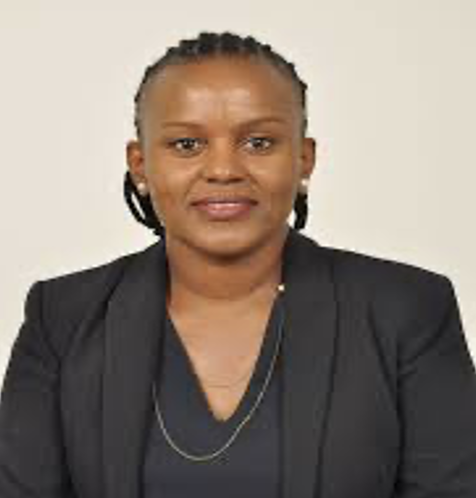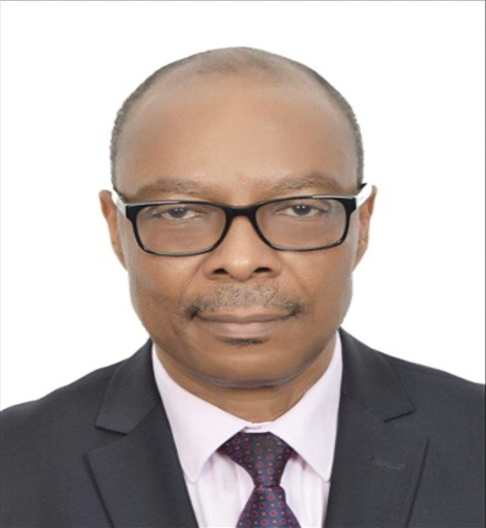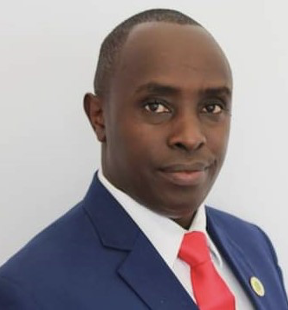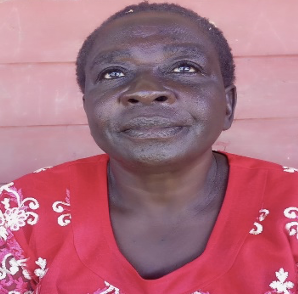About Locally Led Adaptation Metrics for Africa (LAMA)
Background
African communities are among the most severely impacted by climate change, with about 50% of its 1.5 billion vulnerable people relying on farming, a climatically sensitive sector, for their primary livelihood. Coping strategies include developing local adaptation actions supported by National Adaptation Plans of countries and partners.
Global and national policies and strategies are keen to deploy locally led and inclusive adaptation (LLA) actions to combat vulnerabilities faced by these communities (GEF, 2011). The LLA approaches promote locally embedded climate action, including decision-making, technology adoption, financing, and actions tailored to specific vulnerabilities within communities (Soanes et al., 2017). During COP 26, Parties agreed to increase adaptation funding to US$50 billion annually, to scale up adaptation for the most vulnerable communities, including women and marginalized people.
Despite growing interest in accelerating LLA, evidence on effective interventions, vulnerability-specific approaches, and investment opportunities remains scarce. This gap is primarily due to the absence of dedicated bottom-up indicators or community-led frameworks and metrics. Such tools are essential for: i) aligning the priorities of diverse social groups, particularly the vulnerable and marginalized, with policy and investment opportunities; ii) measuring and reporting the effectiveness of LLAs in addressing intersectional vulnerabilities; and iii) linking lessons learned to national adaptation plans, Nationally Determined Contributions (NDCs), and the Global Goal on Adaptation. Without a clear understanding of key indicators of local resilience, resources may be misallocated, hindering progress towards a more resilient future.
Rationale for LAMA Platform
While various frameworks exist for measuring adaptation, including those for business, development, and general LLA principles (such as the International Platform for Adaptation Metrics, or IPAM), these often adopt a broad, top-down approach. Such frameworks may lack the granular detail necessary to address specific vulnerabilities and resilience aspirations through targeted research and investments, or to strengthen local leadership. Although local context is crucial in any metrics framework, there is a compelling case for developing metrics that can aggregate local information to inform national and international priorities and evaluations. This is essential for bridging the gap between adaptation needs and investment.
Africa currently hosts numerous adaptation interventions and projects, each with varying degrees of research and practice focus, including adaptation evaluation. These projects typically develop their own assessment and metrics frameworks, often limited in scope to the project’s sector or type. As a result, evaluations are confined to the project period, and findings are rarely shared or integrated into broader national or international frameworks. Furthermore, these interventions and projects operate in isolation, hindered by geographical, linguistic, ethnic, sectoral, and disciplinary disparities, as well as the diverse range of environmental and climate challenges.
Under the IDRC-funded Locally Led Adaptation Metrics for Africa (LAMA) project, ARIN proposes establishing a LAMA Platform. This platform will foster learning and consolidation of locally led adaptation indicators across Africa. By convening stakeholders engaged in LLA initiatives, the platform will facilitate the sharing of experiences, tools, and indicators, ultimately developing locally led and inclusive frameworks and data to inform the Global Goal on Adaptation (GGA) and the Global Stocktake (GST).
Aim and Objectives
The LAMA Platform aims to convene diverse stakeholders engaged in LLA initiatives across Africa, facilitating the exchange of experiences, tools, and indicators. The platform will consolidate locally led and inclusive frameworks and data to inform the Global Goal on Adaptation (GGA) and Global Stocktake (GST).
Specific Objectives:
- Capacity Building: Provide expert support to African countries and researchers to enhance their capacity in developing adaptation indicators that effectively capture local priorities in an inclusive manner.
- Knowledge Sharing: Facilitate the sharing of experiences and best practices in adaptation measurement among various projects and initiatives operating at the local level.
- Framework Development: Consolidate knowledge and priorities regarding adaptation metrics in Africa, aligning them with national and global frameworks such as National Adaptation Plans (NAPs), Nationally Determined Contributions (NDCs), the GGA, and the GST.
Components of the LAMA Platform
Interactive dashboard
The LAMA dashboard will serve as a central hub for data visualization, analysis, and interaction. It will incorporate local, sub-national, national, and global indicators related to adaptation, climate, and weather. The platform will facilitate comparative analysis, enabling the co-creation of metrics that align local aspirations with broader adaptation policies and investments. Additionally, the dashboard will showcase impact stories from LLA projects across the continent. Read More
LLA Interventions Database
This component will house information on LLA projects and initiatives implemented across Africa. The database will enable the comparison of lessons learned from different interventions. Read More
Tools and Framework Repository
The platform will provide access to a variety of tools and frameworks employed by different initiatives to assess progress and track indicators. Read More
Stakeholder Engagement Platform
A comprehensive stakeholder database will be maintained, including individuals and organizations involved in adaptation at both project and policy levels. These stakeholders will form the LAMA Engagement Group, convening regularly to share insights on adaptation measurement. The expert group will synthesize these findings into knowledge products and advisories. Read More
Metrics Expert Group
Composed of ten experts from diverse backgrounds (including the African Group of Negotiators, research, private sector, government, and local communities), this group will consolidate best practices and indicators. The expert group will also play a crucial role in linking local metrics to national and international frameworks, supporting the African Group of Negotiators’ contributions to the Global Goal on Adaptation, and informing IPCC assessments. Read More
ADVISORY MEMBERS
 Ms. Omari Kulthoum
Ms. Omari Kulthoum
Coordinator for the African Group of Negotiations (AGN) on the Africa Adaptation Initiative. She’s also a PhD candidate at the University of Cape Town with the African Climate Development Initiative studying adaptation governance, with a particular focus on drought governance in Botswana. She has extensive experience in climate adaptation, and in 2018, she joined the Adaptation Committee (AC).
 Professor Anthony Nyong
Professor Anthony Nyong
Director of Climate Change and Green Growth at the African Development Bank (AfDB).Mr. Nyong has about 30 years of experience in environmental and natural resources management, renewable energy and green growth. Positions he has held at the African Development Bank include Coordinator of the New Deal on Energy; Head of the Renewable Energy Flagship, Head of Gender, Climate Change and Sustainable Development Unit; and Head of the Compliance and Safeguards Division. Before joining the Bank, he was a Senior Climate Change Specialist at the International Development Research Centre of Canada and a Professor of Climate Change at the University of Jos, Nigeria. He was a Coordinating Lead Author for the IPCC Fourth Assessment Report and a member of the IPCC Task Group on Data and Scenario Support for Impact and Climate Analysis. Mr. Nyong has also served on several Global Advisory and Scientific Boards including the Sustainable Stock Exchange Green Finance Advisory Group. Mr. Nyong holds a Ph.D. in Geography from McMaster University, Canada. He is a Senior Executive Fellow of the Harvard Kennedy School of Government, a Chartered Geographer and a Fellow of the AfricanAcademy of Sciences. He is named among the top 20 of the 100 most Influential People in Climate Policy by 2019 by Apolitical
 Charles Mwangi
Charles Mwangi
Charles Mwangi is a seasoned Climate Change Specialist with over 17 years of experience working across local, national, and international levels. Currently, as the Head of Programs at the Pan African Climate Justice Alliance (PACJA), he plays a pivotal role in designing and executing climate change and community-based development initiatives across Africa. He oversees the implementation of 11 such initiatives across all 51 African countries.
With a strong background in strategic management and operational skills, Charles excels in fundraising and executing climate change and conservation projects funded by diverse partners. Prior to his role at PACJA, he led PACJA’s work on resilient people, society, and economies in all 51 African countries. He has also significantly contributed to the Sustainable Tropics Alliance (STA) in an advisory capacity and participated in Low Emission Rural Development discussions across several countries.
In Kenya, Charles has been actively involved in policy development concerning climate change and REDD+ (Reducing Emissions from Deforestation and Forest Degradation). His past roles include serving as the Head of Programs at the East Africa Wildlife Society and leading the climate change department at the Green Belt Movement.
Beyond climate change, Charles has a keen interest in natural resources conflict resolution and mediation. He is trained in reflexive mediation and has contributed to the development of conflict resolution courses for institutions.
Charles holds a Bachelor’s degree in Education Science and a Master’s degree in Plant Ecology.
 Rosemary A. Gumba
Rosemary A. Gumba
Rosemary Gumba is a multifaceted professional with two decades of experience in school administration and psychology. As a seasoned psychologist, she offers valuable insights, while her experience in school management translates to effective leadership. Her passion extends beyond her core roles, as she actively champions environmental innovation. Rosemary’s positive energy and motivational spirit are infectious, uplifting colleagues and inspiring success. Finding inspiration in her family – husband, children, and grandchildren – Rosemary maintains a healthy work-life balance, enjoying reading, movies, and playful moments with her loved ones.
